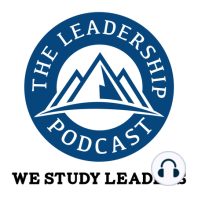39 min listen
TLP355: The Art of a Meaningful Life
ratings:
Length:
39 minutes
Released:
Apr 19, 2023
Format:
Podcast episode
Description
Vitaliy Katsenelson is the CEO and Chief Investment Officer of IMA and the author of three books. His most recent book is “Soul in the Game: The Art of a Meaningful Life.” Vitaliy was born in Murmansk, Russia, and immigrated to the United States with his family in 1991. In this interview, Vitaliy contrasts his experience growing up in the Soviet Union with his experience in the United States, and how different his mindset was in each place. He also discusses how Stoic philosophy has been very helpful. He discusses how his essay about Tchaikovsky aims to help others who may be struggling with creativity. Listen in for a vibrant discussion on intention, communication, and vulnerability. https://bit.ly/TLP-355 Key Takeaways [1:53] Vitaliy’s bio. (See at the end of the show notes.) [2:22] Vitaliy loves investing, writing, classical music, and spending time with his family, Vitaliy’s father is a fantastic artist and Vitaliy has a small gallery of his work. [3:49] How Vitaliy sees the differences between Murmansk, Russia, and Denver, Colorado. Denver has lots of sunshine. In the winter, Murmansk has a few minutes of sunshine a day. When Vitaliy lived there, it was Soviet Russia. Freedom of speech and the free market did not exist in Russia. All businesses were owned by the government. Here we have an abundance of food and a lack of scarcity. [6:56] Vitaliy shares thoughts on how Russians and Americans communicate. He read How to Win Friends and Influence People when he was 18 in Russia. He hated the book and felt it was teaching him how to be fake. He read it again 20 years later and was shocked by how brilliant it is. He is re-reading it with his 17-year-old daughter and she loves it. She has an American mindset. [8:06] When Vitaliy came to the U.S. he found that Americans are very indirect and smile all the time, contrasted with Russians who are sometimes painfully direct. Vitaly was fired from his first American job. The man firing him was smiling at him, which was a confusing signal. Vitaly fine-tuned himself to a balance between directness and indirectness. He tries not to criticize people so his message is clearly received. [9:10] If Vitaliy has a criticism, he first tries to make sure to tell the person positive things. Then he structures the criticism as constructive feedback. He learned that from Dale Carnegie and living in the U.S. for 30 years. Vitaliy says if he had continued to communicate in the Soviet Russian style, he could not have achieved anything in the U.S. [10:43] Vitaliy’s intentionality comes from the conscious choice to be mindful. To have a work/life balance you just have to be mindful about having the balance. Vitaliy knew he wanted to be a good father to his children. He made a mindful choice to spend more time with his children. He chooses to drive his children to school before going to work on a busy day. [12:38] Vitaliy has a value to be a good father. To live up to the value he has to be mindful about being with his children. If he just went on autopilot, he would just default to the easiest things to do which for him is working 10-hour and 12-hour days. To be mindful, he stops after eight hours. When he gets home and has dinner with his kids, he’s not looking at his phone. He’s present with them, giving them attention. [14:26] To live a meaningful life, figure out exactly what you value and spend your time according to your values. [15:32] Vitaliy sees value in simplicity. [16:50] As Vitaliy was working on the last chapter of his book, he put it on pause to study and write on Stoicism. He studied Epictetus, Marcus Aurelius, and Seneca. Epictetus taught a framework that some things are up to you and some things aren’t. What is up to you are your values and how you behave. Everything else is external and is not up to you. Don’t try to control what is out of your control. [19:03] Vitaliy’s 17-year-old daughter just got her first job at a coffee shop. She finds a co-worker annoying. Vitaliy asked
Released:
Apr 19, 2023
Format:
Podcast episode
Titles in the series (100)
TLP002: Tom Morris - True Leadership, A New Philosophy of Excellence: Tom asks us to take a break and think – and know yourself. He views philosophy as a mirror to understand one’s true values and beliefs. Being self-reflective is not to slow you down, but make you better. He also said that sometimes, “Talking is... by The Leadership Podcast
